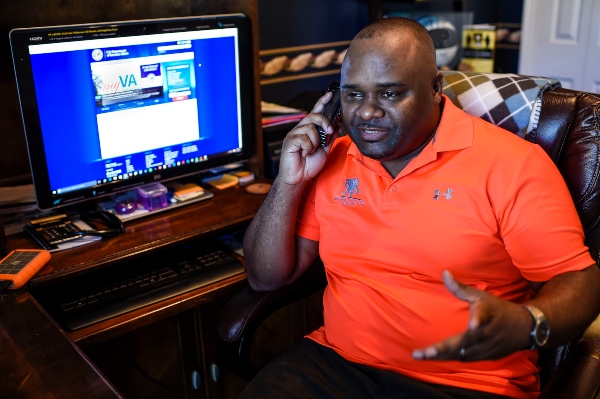What Veterans Should Know Before Starting the Benefits Claims Process

Applying for disability compensation benefits with the Department of Veterans Affairs (VA) can be challenging for warriors and their families, especially while the nation continues to battle the COVID-19 pandemic.
Wounded Warrior Project® (WWP) is here to help address these challenges and navigate the complexities of the claims process with the VA and the Department of Defense (DoD). Before starting this process, WWP recommends warriors and their families understand and remember the following:
- You are not alone. The Benefits Service program at WWP works individually with wounded, ill, and injured veterans to understand their unique needs, provide information and education on the claims process, advise them of benefits options, file benefits claims, help obtain necessary evidence, and stay connected with them through the life cycle of the claim. Call WWP’s Resource Center at 888-997-2586 to connect with an advocate and secure the support you deserve.
- For most service-connected claims, there must be documented medical evidence of the claimed condition during military service. The condition must be proven to be chronic in nature with a paper trail of continued treatment for the claimed condition event after being discharged from service. Normally, you can obtain your medical records online at the National Personnel Records Center (NPRC) website. But due to the COVID-19 pandemic, the NPRC is closed except for emergencies.
- In the absence of documented medical evidence, it’s helpful to obtain a medical opinion from a treating physician that directly links the claimed condition to your military service.
- Should you not be able to provide medical records for your case, a letter from a reputable source or “buddy statement” can also be submitted. Sources that are considered reputable include an eyewitness account or a high-ranking military official from your unit.
- You can also provide your account of the facts and circumstances surrounding your disabilities, injuries, or diseases by annotating precisely what happened, when and where it happened, and how it impacts you. As a veteran, you can speak to the validity of your injuries as a reasonable and prudent person capable of making a sworn statement.
- There are some conditions that may not necessarily be diagnosed in service, such as post-traumatic stress disorder (PTSD). Many warriors file claims for PTSD, but often they have not been formally diagnosed. To be successful with this type of claim, an actual diagnosis and a verifiable stressor or an event that can be linked to the cause of the PTSD are necessary. For combat veterans, this can be demonstrated by showing combat service on the DD-214.
About Wounded Warrior Project
Wounded Warrior Project® (WWP) connects, serves, and empowers wounded warriors. Read more at https://newsroom.woundedwarriorproject.org.